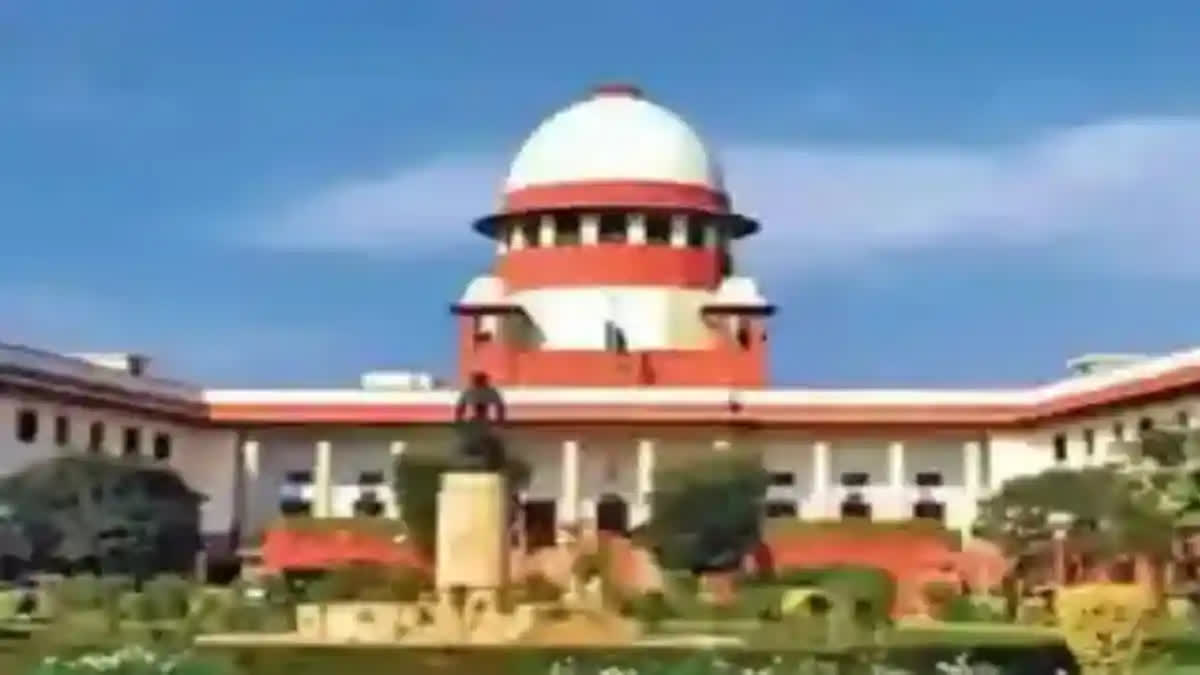New Delhi: The Supreme Court on Thursday, while striking down the 2018 electoral bond scheme, said unlimited contribution by companies to political parties is antithetical to free and fair elections and, on Centre’s contention that the scheme curbs black money and its circulation, added that the scheme is not the only means for curbing black money in electoral finance.
A five-judge bench headed by Chief Justice of India D Y Chandrachud said the chief reason for corporate funding of political parties is to influence the political process which may in turn improve the company's business performance.
The bench said a company, whatever may be its form or character, is principally incorporated to carry out the objects contained in the memorandum and the amendment of various laws now allows a company, through its Board of Directors, to contribute unlimited amounts to political parties without any accountability and scrutiny.
"Unlimited contribution by companies to political parties is antithetical to free and fair elections because it allows certain persons/companies to wield their clout and resources to influence policy making. The purpose of Section 182 (Companies Act) is to curb corruption in electoral financing”, said the CJI, who authored the majority judgment, on behalf of the bench.
“The amendment to Section 182 by permitting unlimited corporate contributions (including by shell companies) authorises unrestrained influence of companies on the electoral process. This is violative of the principle of free and fair elections and political equality captured in the value of 'one person one vote'", said the bench.
The top court said the ability of a company to influence the electoral process through political contributions is much higher when compared to that of an individual.
"A company has a much graver influence on the political process, both in terms of the quantum of money contributed to political parties and the purpose of making such contributions. Contributions made by individuals have a degree of support or affiliation to a political association. However, contributions made by companies are purely business transactions, made with the intent of securing benefits in return," the bench observed.
On the aspect of whether the encroachment on fundamental rights is proportional to the objection sought to be achieved, the bench said the state did not adopt the least restrictive method and as examples of the least restrictive methods, cited the Rs 20,000 cap on anonymous donations.
"We are of the opinion that companies and individuals cannot be equated for the purpose of political contributions," said the bench.
The apex court also said that the electoral bonds violate people's right to information and Article 14 of the Constitution guaranteeing equality and they also infringe on the principle of free and fair elections as stipulated in the Constitution.
Electoral bond scheme is not the least restrictive to achieve the purpose of curbing black money
The Centre argued that the main purpose of the scheme is to curb black money in electoral financing and stressed on protecting donor privacy. After the introduction of the Electoral Bond Scheme, 47 per cent of the contributions were received through electoral bonds which is regulated money. The Union of India submitted that providing anonymity to the contributors incentivises them to contribute through the banking channel.
The bench said restricting the contributions to political parties in cash to less than rupees two thousand and prescribing that contributions above the threshold amount must only be made through banking channels is itself intended to curb black money. Thus, the legal regime itself provides other alternatives to curb black money: contributions through cheques, bank drafts, or electronic clearing system, it added.
The Union of India submited that though there are other alternatives through which circulation of black money in electoral financing can be curbed, these alternatives do not realise the objective in a "substantial manner" because most contributors resort to cash donations as they "fear consequences from political opponents" to whom donations were not made.
The bench said the existing legal regime provides another alternative in the form of electoral trusts through which the objective of curbing black money in electoral financing can be achieved.
An electoral trust is formed only for collecting political contributions from donors. An electoral trust can contribute to more than one party.
The bench said it is only where the electoral trust contributes to one political party, there would be a possibility of political consequences and witch-hunting (assuming that there is a link between anonymity and contributions).
The bench said on an overall balance of the impact of the alternative means on the right to information and its ability to fulfil the purpose, for contributions below 20,000 rupees, contributions through other means of electronic transfer is the least restrictive means.
"For contributions above 20,000 rupees, contributions through Electoral Trust is the least restrictive means. Having concluded that the Electoral Bond Scheme is not the least restrictive means to achieve the purpose of curbing black money in electoral process, there is no necessity of applying the balancing prong of the proportionality standard…..we conclude that Electoral Bond Scheme does not fulfil the least restrictive means test," said the bench.
The apex court said the scheme is not the only means for curbing black money in electoral finance. “There are other alternatives which substantially fulfil the purpose and impact the right to information minimally when compared to the impact of electoral bonds on the right to information”, it added.



